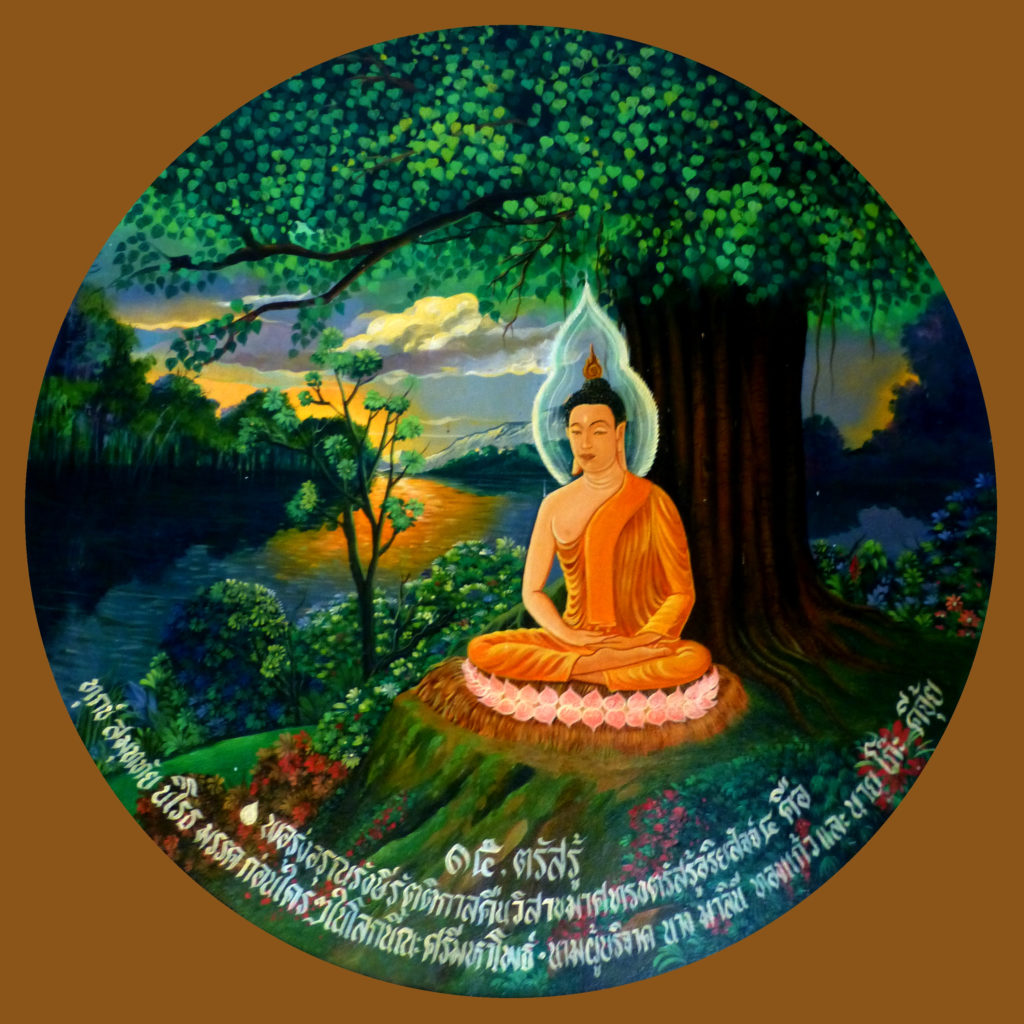Many of the words and terms essential to Buddhism are in the Pali or Sanskrit languages and have remained common derivatives from the original for centuries, even when speaking in other languages. These words often vary in spelling, as they have been transliterated from their original alphabets, so to understand Buddhist terms one must keep in mind that a word can appear in different forms.
Below, find an alphabetical list of essential words and key concepts in Buddhism. I will often give alternate spellings; learning these will save a lot of confusion later!
Key Terms/Words of Buddhism
Ahimsa: non-harming (of both other beings and yourself).
Anatta (Pali), Anatman (Sanskrit): no-self, without owner; one of the Three Marks of Existence.
Anicca (P), Anitya (S): impermanence; one of the Three Marks of Existence.
Arahant (P), Arhat (S): one who has attained enlightenment.
Avijja (P), Avidya (S): ignorance.
Bodhisattva: one who delays attaining full enlightenment to better helps others attain enlightenment first.
Bodhi Tree: the tree under which Siddhartha Gautama attained enlightenment.
Buddha: “The Enlightened One” or “The Awakened One.”

Dhamma (P), Dharma (S): when not capitalized, “phenomenon,” mental quality, or teaching; when capitalized, refers to the Buddha’s teachings.
Dukkha: “suffering,” one of the Three Marks of Existence.
Eightfold Path: the way to end suffering as laid out by the Buddha; Right View, Right Intention, Right Speech, Right Action, Right Livelihood, Right Effort, Right Mindfulness, and Right Concentration.
Four Noble Truths: 1) Life means suffering; 2) The origin of suffering is attachment; 3) The cessation of suffering is attainable; 4) There is a path that leads to the cessation of suffering (the Eightfold Path).
Kamma (P) Karma (S): the Buddhist law of cause and effect behind the cycle of death and rebirth (literally “action”).
Lama: a Tibetan teacher, master; like Sanskrit “guru.”
Mahayana: literally “great vehicle,” one of the major schools of Buddhism with the goal of attaining the bodhisattva state.
Mantra: chant, often used to aid concentration, to reach enlightenment; major Buddhist example, “om mani padme hum.”
Metta: “loving-kindness.”
Mudra: literally “seal,” the hand and finger gestures made in meditation.
Nibbana (P), Nirvana (S): bliss, absolute extinction of suffering.
Samadhi: blissful concentration achieved through meditation practice (as in “Right Concentration” of the Eightfold Path).
Samsara: the cycle of rebirth until attaining enlightenment.
Siddhartha Gautama: one most often referred to when saying “the Buddha,” who attained enlightenment under the Bodhi Tree.

Sutra: scripture, short aphorisms or the collections themselves.
Theravada: literally “the way of the elders,” one of the major schools of Buddhism with the goal of attaining enlightenment.
Three Jewels: three things that Buddhists take refuge in – the Buddha, Dharma (the Buddha’s teachings), and Sangha (the community of realized practitioners).
Vajrayana: literally “diamond vehicle,” one of the major schools of Buddhism – though it is a descendant of Mahayana – with the goal of attaining the bodhisattva state.
Zen: a school of Buddhism, the Japanese descendant of Mahayana emphasizing meditation in the pursuing of enlightenment.





